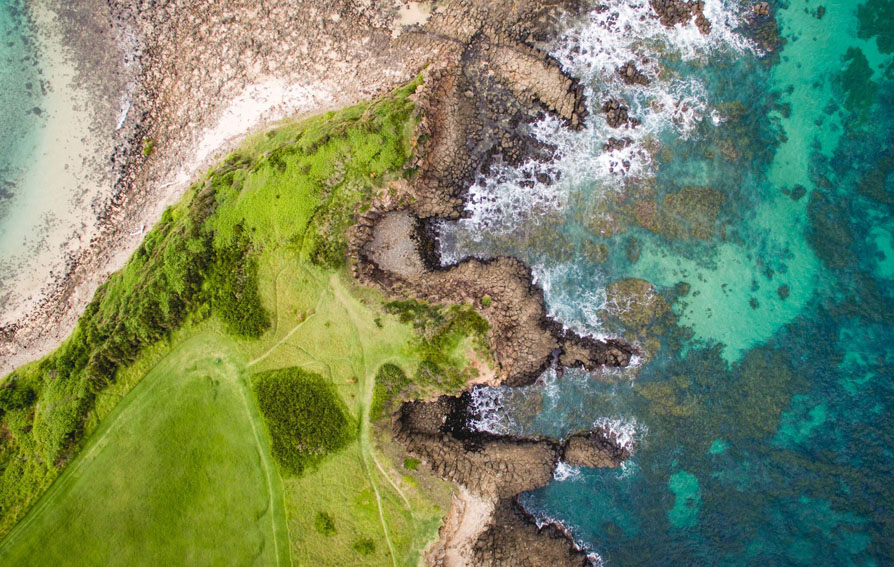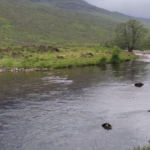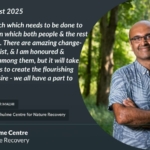Guidelines for Nature-based Solutions

Humanity is facing a climate, biodiversity, and social crisis: keeping global warming below dangerous thresholds & reversing the global decline in biodiversity are the two greatest environmental challenges of our century. We all depend on healthy ecosystems for food, energy, water, and biodiversity.
The Paris Agreement, the publication of the IPCC SR 1.5 (2018), and the rise of the Fridays For the Future Movement have brought the climate crisis high on the agenda for many people, governments, and businesses (WEF, 2020). At the same time, the publication of the IPBES Global Assessment on Biodiversity and Ecosystem Services (IPBES, 2019), the launch of the UN Decade of Ecosystem Restoration 2021-2030, and the negotiations on a New Deal for Nature and People will lay out a global strategy for protecting our natural world up to 2030 (Convention on Biological Diversity, COP15).
Protecting and restoring Nature, letting the wild be wild, can help us heal our planet. But we need to invest in the right projects, or we risk doing more harm than good.
First, we can’t rely on planting trees to limit global warming. We will slow down global warming and stay below 1.5oC warming by reducing our use of fossil fuels, not by offsetting our emissions through biological sequestration.
Focussing on Carbon sequestration means that the millions of dollars being invested into ecosystem restoration projects risk going to single species or low biodiversity plantations, fast-growing, exotic, and low-density wood species with short rotation periods (eg. Eucalyptus, Pinus and Acacia).
Several organisations have signed NbS guidelines to send to the President of COP 26, these aim to provide clear targets for protecting biodiversity, and guidelines on how to account for benefits other than carbon.
The guidelines state that successful Nature based Solutions projects:
- Are not a substitute for a rapid fossil fuel phase-out.
- Involve the protection and/or restoration of a wide range of naturally occurring ecosystems on land and in the sea. In other words, don’t plant trees on natural native ecosystems that don’t need more trees (eg. Savannahs).
- Are implemented with full engagement and consent of Indigenous Peoples and local communities, apply robust social safeguards, and are designed to build human capacity to adapt to climate change. We need to respect livelihoods and human rights.
- Sustain, enhance or support biodiversity. Biodiversity plays a vital role in the healthy functioning and resilience of ecosystems.
In a nutshell, next time you get out your credit card to offsetting your emissions. Stop. Think. Can you avoid these emissions? And when you invest in nature, invest in Nature-based Solutions that protect biodiversity, make local communities more resilient to change, and sequester carbon.
Explore these principles, and the scientific publications that support them.
The Nature-based Solutions Initiative is an interdisciplinary programme of research, policy advice and education based at the University of Oxford. It brings together natural, physical and social scientists with economists, governance and finance experts from across the University and beyond. Its mission is to enhance understanding of the potential of Nature-based Solutions to address global challenges and increase their sustainable implementation worldwide.
References
- IPCC. 2018. Summary for Policymakers. In: Global Warming of 1.5°C.
An IPCC Special Report on the impacts of global warming of 1.5°C above pre-industrial levels and related global greenhouse gas emission pathways, in the context of strengthening the global response to the threat of climate change, sustainable development, and efforts to eradicate poverty. V. Masson-Delmotte, et al. eds. Geneva, Switzerland: World Meteorological Organization. - IPBES. The global assessment report on biodiversity and ecosystem services of the Intergovernmental Science-Policy Platform on Biodiversity and Ecosystem Services. Bonn, Germany: IPBES Secretariat, accessed August 2, 2019.
- World Economic Forum, the Global Risks Report, 2019
- NbS Guidelines
Other recent stories




Associated people

